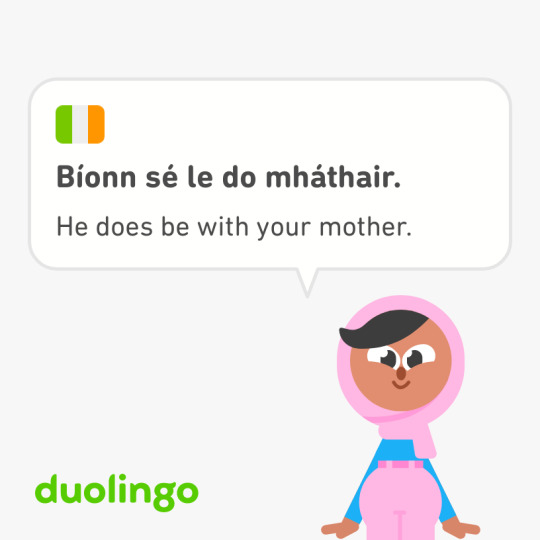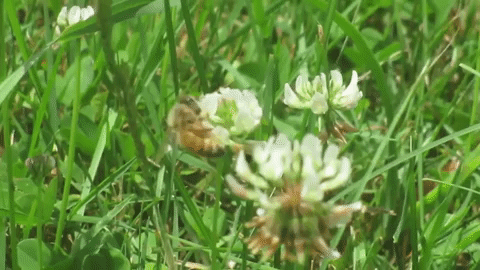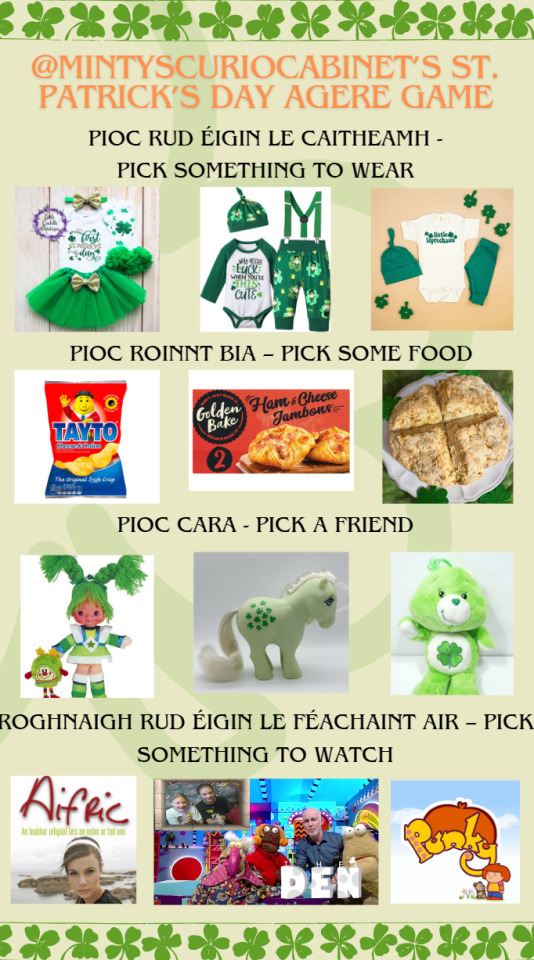#irish langblr
Text
Also btw every single complaint about irish pronounciation and spelling in schools would be solved if we hammered in the slender/broad distinctions early because it would become abundantly clear why this 't' has to be surrounded by 'i's and it isn't just a thing they decided to do one day and more people would be able to spell words from just hewring them and pronounciation from just reading them send tweet
6K notes
·
View notes
Text
Don't Use Duolingo if You Really Want to Learn Irish
That title is a bit dramatic, but I really don't think that duolingo is a useful tool for Irish, especially in its current state, so I want to talk a bit about why, and I'll also talk about some alternatives.
Pronunciation
The first and most egregious issue is that at some point recently-ish, duo decided to start using Text-To-Speech for their Irish course, rather than recordings of a native speaker. The problem here is that their TTS is not trained on native speakers of Irish and pronounces words incorrectly. It doesn't make consistent distinctions between broad and slender consonants for example.
Irish has no standard pronunciation, so I understand how it can feel weird to choose just one dialect for the purposes of pronunciation (the old recordings were from a speaker of Galway Irish), but having just one dialect is much better than TTS which sounds like a learner, imagine if they had TTS for the French course which sounded like an anglophone schoolkid trying to pronounce french, and claimed they were teaching you how to speak french!
Grammar
Duo tends to be correct on grammar at least, which is a start. But often people using it get very confused about the grammar because duo doesn't explain any of it. I think there's a place for immersion in language learning, and I don't think everything has to be explained like that, but within duo's system of sentence testing and exercises like that, not having any explanation for why it's "mo chóta" and not "mo cóta" can be really confusing. Duo used to have more grammar information, it's a shame that they removed it, I wonder why they did it.
Money and Motivation
Duolingo is a business, and their motivation is not to help you learn a language 'fully', but to keep you using their app and hopefully have a higher chance of sharing it with others, competing with others, buying or causing others to buy memberships or lingots or any other in-app purchases.
I don't want to make it out like duo is some big conspiracy and they're tricking people, I don't think that's the case, but it's good to remember that their primary motivation is to keep people using the app, rather than help people move to a level in a language where they don't need the app anymore.
Keep this in mind whenever you see people trying to sell you stuff for language learning.
Why do people use Duolingo
I do get it, and I don't want to make anyone feel bad for using duo, there's a ton of reasons people tend towards it at first
1. It's really well known, so especially if you're learning a language and haven't heard of other resources for it, you'll check duolingo
2. It's very motivating for a lot of people, checking in every day and forming that habit is a really good way of sticking with a language
3. It's fun, people enjoy it
If you use it for reason 3. and you still like it, then don't worry about this post, I'm not trying to yuck anyone's yums, keep having fun!
If you use it for reasons 1. or 2. you can still keep using it if you like, but I want to suggest some other things which you might find helpful in trying to get to a higher level in Irish.
Other Resources
To address the pronunciation issue, I'd heavily recommend you disregard the pronunciation in duolingo, if you're looking for more reliable sources of pronunciation, I'd look towards recordings of native speakers, you can find that on:
Teanglann and Foclóir (they use the same recordings)
Fuaimeanna
and a really useful and underused one: https://davissandefur.github.io/minimal-pairs/ where you can hear the difference between similar sounds that English speakers often mix up in Irish.
A lot of people like duolingo because it's nice to have a clear path forward, a progression that you can get into without too much decision-making. For this I recommend getting a good textbook or course and working through it, the ones I'll recommend also have native speaker audio on them.
Learning Irish by Mícheál Ó Siadhail, this book teaches Galway Irish, not just in pronunciation but in grammar too. It's quite dense but it's well thought out and well explained.
Teach Yourself Irish (1961) this book is available for free online, and is a really good option if you're interested in Cork Irish (Munster), and have some experience with grammatical terminology. I used this book myself and really liked it, but it's very intense and not for everyone. (If you do end up using it, feel free to skip the appendices at the start, they're more of a reference and sometimes put people off from actually getting to the first chapter. Also if you have any questions about it or need any help just let me know.)
If you want a video course, there's a great course called "Now You're Talking" which is available for free online, along with audio files and worksheets here. It features Donegal Irish and leads into the more intermediate level course called Céim ar Aghaidh also available online.
There's other textbooks that I have less experience with (Buntús na Gaeilge, Gaeilge/Gramadach Gan Stró, etc.) but if they work for you, stick with them, there's nothing worse than not making progress because you keep switching resources trying to find the "perfect one"
Whether or not you continue to use Duolingo, I would really really encourage you to try engaging with media in Irish. People often shy away from this when they're learning because they don't feel like they're "ready" yet. But you basically never feel like you're ready, you just have to try and find something near your level and try to get comfortable with not understanding everything. This is where you learn a huge portion of the language, you hear how things are pronounced you see what words mean in what contexts, getting input in your target language is so important!
I know content can be kind of hard to find, so I'll make a few recommendations here:
There's a wealth of content available for free online (more if you're in ireland but some internationally) on TG4 If you're still starting out, I'd recommend trying to watch some kids shows since they'll have simpler language and will be easier to follow. I wouldn't recommend using English subtitles when you watch them. Some good options include:
Dónall Dána: an Irish dub of Horrid Henry, silly and childish but the actors have good Irish and importantly the show has Irish language subtitles, they don't always match but if you're still beginning and can't necessarily get everything by ear, they're really useful. (Mostly Galway Irish)
Curious George: another dub, again with Irish language subtitles (I can't remember what dialects were in it off the top of my head but I'd assume mostly galway again)
Seó Luna: No subtitles, but a good option if you're aiming for Munster Irish, the lead character has Kerry Irish
Miraculous: No subtitles but a better show than most of the other kids' ones and more bearable to watch as an adult (Mostly Galway Irish)
Ros na Rún: Moving away from kids shows, a long running soap opera, this has Irish subtitles and a really good mix of dialects within the show. If you're finding the kids shows boring or too easy I'd really recommend it, but it can be complex because of the amount of characters, dialects, and plotlines. I'd recommend starting at the beginning of a newer season and just trying to catch on to what's happening as you go.
There are a lot of books, if you live in Ireland you can get nearly any Irish book for free from a library, so please check out your local library or request some of these from other libraries in the system:
There's a series of fairytales (Rápúnzell, Luaithríona etc.) by Máiréad Ní Ghráda which are illustrated and for children, which are a really good option for when you're just starting out reading
There's kids books about Fionn and the Fianna by Tadhg Mac Dhonnagáin
There's a cute little kids' book in Kerry Irish about a cat named Mábúis
Leabhar Breac has a lot of graphic novels, some of them based on Irish mythology, some on other stuff. The fact that they're illustrated can make it a lot easier to follow even if you don't understand all the words at first.
Gliadar has just released their Scott Pilgrim translation
If you're looking for something a bit more advanced you can look at some of the books for adult learners by Comhar, they contain simplified language and glossaries but have full original adult stories.
And if you're wanting full, natural, native-level Irish there's a load of books by those same groups, and others like An Gúm, Cló Iar-Chonnacht, Oidhreacht Chorca Dhuibhne, Éabhlóid, Coiscéim, and more.
And don't shy away from older books written in Seanchló either, they can be more challenging but it's a whole extra world of books
If you're trying to improve your listening comprehension, I definitely recommend listening to shows on Raidió na Gaeltachta, hearing native Irish speakers talk at full speed is really good practice. But I get that it can be overwhelming at first. Here are some things you can do as you build up to that:
Watching those same TV shows I mentioned without subtitles is a good way to build up listening skills.
Vifax is a website where you can practice listening to short news segments and answer questions on them, then getting to look at the transcript with notes afterwards.
Snas is kind of the evolution of vifax, now using clips from both the news and Ros na Rún.
I really hope that this post can help people move away from duolingo if they're looking to take their Irish learning to the next level, if you've got any questions, just let me know!
2K notes
·
View notes
Note
please share the setanta gossip video you put on IG here, i know the tumblr nerds will appreciate it and i want to share it with them 💚
ÚÚÚÚÚÚÚÚ yass
d'athraigh setanta a ainm? slé!
#físeán#vid#gaeilge#gaeilgeblr#blocblr#irish#bloc tg4#irish language#irish langblr#bloctg4#tg4#meme#sketch#irish mythology#irish history#setanta#cu chulainn#cú chulainn#táin bó cúailnge#an táin#irish folklore#mythology#celtic#celtic mythology#folklore
1K notes
·
View notes
Text
it do be like that I guess

348 notes
·
View notes
Text
did you hear there’s a new short film that is GAY?? LESBIAN, even???
AND it’s filmed in a minority language?? a CELTIC language, one might say??
AND that it’s available for FREE, with SUBTITLES in both irish AND english??

“FAN” (2024) dir. by cúnla ní bhraonáin morris
watch here 🫶
#fan#fan film#short film#irish film#irish short film#gay short film#lesbian#gay#irish#gaeilge#irish language#langblr#minority language#endangered language#gaelic#irish art#irish gaelic#stay#gearrscannán#gael#celtic#irish langblr#bloc tg4#tg4#romcom#comedy#lighthearted#romance#gay romance#lesbian romance
157 notes
·
View notes
Text
being a polyglot is so funny to me because instead of having a song stuck in my head like a normal person i have the irish word for sandwich stuck in my head
#dont ask me why#it just sounds so good#ceapaire#langblr#language#language learning#irish langblr#gaeilge
262 notes
·
View notes
Text
Some interesting words & phrases about rain in irish
Clagarnach baistí - pelting rain
Ag clagarnach ar an díon - rain pattering on the roof
Bogfhearthainn - soft rain
Fliuch go craiceann - soaked to the skin
Breacbháisteach - occasional rain
Seadbháisteach - drizzle of rain
Cídeog - covering your head and shoulders against rain/wind
Spútrach - a downpour of rain, "Splashing rain"
#irish#gaeilge#gaeilgoir#irish language#irish langblr#irish culture#irish phrases#frasaí#Eirinn#Eire#Eireann
120 notes
·
View notes
Text
Does anyone know of a website or app that has free ebooks and/or audiobooks in the irish language?
90 notes
·
View notes
Text
Bee vocabulary as Gaeilge

Was watching a documentary about bees on TG4 so I decided look up some words to help me better understand
Gaeilge - English
Ál beacha - Bee brood
Beach - Bee
Beachaire - Beekeeper
Beach bheala - Honeybee
Beachlann - Apiary
Beachnaireacht - Apiculture
Beach oibre - Worker bee
Bláth fiáin - Wildflower
Bumbóg - Bumblebee
Céir bheach - Beeswax
Cíor mheala - Honeycomb
Coilíneacht - Colony
Coirceog - Beehive
Cráinbheach - Queen bee
Glóthach ríoga - Royal jelly
Ladrann - Drone
Larbha - Larva
Mil - Honey
Neachtar - Nectar
Pailin - Pollen
Pailneoir - Pollinator
Pailnigh - To pollinate
Saithe - Swarm
#feel free to correct me if i got any of them wrong#also bumbóg is probably my new favorite word alongside bolb#bug tw#insect tw#gaeilge#as gaeilge#vocabulary#irish vocab#langblr#irish langblr#language learning#learning irish#polyglot#irish language
215 notes
·
View notes
Text
I’ve been revising Irish and I had completely forgotten how much of an extra language it is.
For example, in English you say “I am really sorry.” The Irish translation is literally “the sadness of the world is upon me.” Tá brón an domhain orm. 💀🇮🇪
1K notes
·
View notes
Text
Gotta start treating english like monolinguistic english speakers treat other languages
Did you know English doesn't have a word for the Irish word 'mar'? Instead they have to say 'is the cause' of or 'because' for short
#languages#english#enlish language#béarla#gaeilge#gaeilgóir#irish#irish language#irish langblr#linguistics
546 notes
·
View notes
Text
My Irish language audio CD: listen to the difference between broad and slender L as in, béal and béil, fál and fáil, ól and óil.
Me, with tears in my eyes: they sound exactly the same
83 notes
·
View notes
Text
"irish is a dead language" L + ratio + is fearr Gaeilge bhriste ná Béarla cliste + Béarla is a dead language + tá Gaeilge cúláilte + C.E.A.R.T.A. + BLOCTG4 + ratio eile +
455 notes
·
View notes
Text
idk how to explain this but gaeilge is one of the best tasting languages. all of the words feel so crunchy and nice in your mouth. the language equivalent of kettle crisps
#irish things#irish language#irish langblr#gaeilge#i am pro choice btw pro birthers can fucking choke and fuck the catholic church <3#shame that i had to clarify that on a post celebrating my mother tongue but alas
622 notes
·
View notes
Text
Cluiche agere do Lá Fhéile Pádraig!

Lá fhéile Pádraig sona daoibh ón Éireannach is fearr leat! Tá súil agam go mbeidh lá álainn agaibh go léir ☘🇮🇪
Happy St. Patrick's Day from your favorite Irishman! I hope you all have a lovely day ☘🇮🇪

#agere games#agere game#st paddys day#st patricks day#ireland#irish#irish agere#irish age regressor#agere#sfw age regression#age regression sfw#age regressor#sfw agere#age regression#autistic agere#agere community#irish language#irish langblr#langblr#gaeilge#as gaeilge#language#languages#sfw interaction only#Spotify#my little pony#mlp#rainbow brite#care bears
24 notes
·
View notes
Text
i told my coworker i was starting to learn Irish and he was like "why? at least learn a cool language like latin". O_O like...huh?
aside from the fact that all languages are cool in their own right, saying that about a language that has been historically suppressed is just wild to me.
#irish is such a cool language#ive been learning it for 3 days and i love the way it sounds#language revitalization#gaeilge#langblr#language#language learning#irish langblr
206 notes
·
View notes